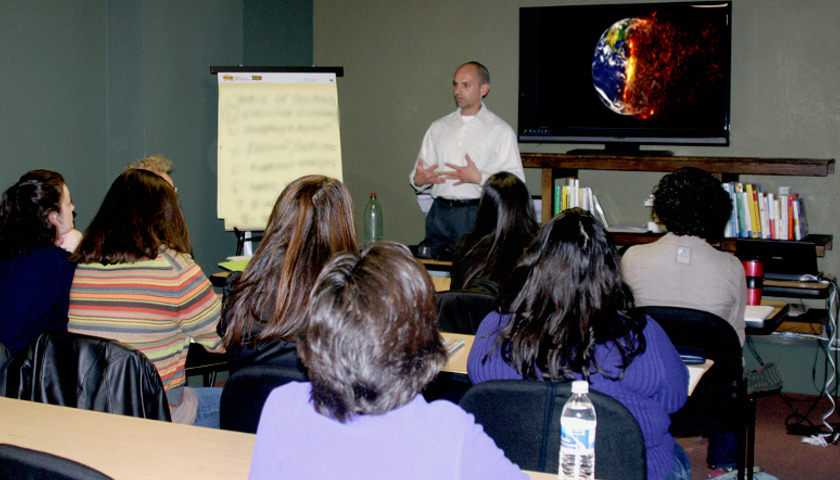Minnesota’s Department of Education is currently in the process of rewriting its K-12 academic standards in science to give teachers greater autonomy over discussing climate change in the classroom.
The Department of Education announced the formation of a Science Standards Committee in March 2018, and held its first full committee meeting in August. That committee submitted its first full draft of rewrites in November, and is scheduled to submit a second draft in late February. According to a timeline on the Department of Education’s website, the committee will submit a final draft to Commissioner Mary Cathryn Ricker in May after a public and expert review comment period.
The first draft of the proposed “Academic Standards in Science” is available for download on the Department of Education’s website, and specifically addresses climate change in the “Grade 9-12 Earth and Space Sciences” subcategory.
“Analyze geoscience data and the results from global climate models to make an evidence-based forecast of the current rate of global or regional climate change and associated future impacts to earth’s systems,” the draft report states.
The new standards would also requires students to “construct an explanation based on evidence for how the availability of natural resources, occurrence of natural hazards, and changes in climate have influenced human activity.”
[pdf-embedder url=”http://battlegroundstatenews.com/wp-content/uploads/2019/01/2019-Science-Standards-First-Draft-FINAL.pdf” title=”2019 Science Standards First Draft FINAL”]
The Science Standards Committee is composed of 36 public-schools teachers, professors, and community members, including Kristen Poppleton, the director of programs for Minnesota’s Climate Generation organization.
“Kristen shapes, implements and evaluates K-12 education and public engagement initiatives. Kristen has authored several of Climate Generation’s curricula resources. She plans and implements professional development opportunities for educators and coordinates local and national collaborations around climate literacy,” her bio states.
Climate Generation, a “Will Steger legacy,” is a “nationally connected and trusted nonprofit dedicated to climate literacy, climate change education, youth leadership and citizen engagement for innovative climate change solutions.”
Sarah Goodspeed, Climate Generation’s youth and policy manager, recently told MinnPost that “there are a lot of teachers, especially in the more conservative parts of the state, that fear backlash” over teaching climate change.
“So it become something that a lot of teachers…avoid, or just because they’re so busy, it becomes one more thing to add on instead of a really integral part of the existing curriculum,” she said.
Minnesota Can’t Wait, a youth-led climate-change group that is supported by Climate Generation, met with Gov. Tim Walz (D-MN) Wednesday. The group called for a Minnesota Green New Deal, the regulation of greenhouse gasses, and no new fossil fuel projects.
– – –
Anthony Gockowski is managing editor of Battleground State News and The Minnesota Sun. Follow Anthony on Twitter. Email tips to [email protected].





[…] As The Minnesota Sun reported in January, the Minnesota Department of Education rewrote its K-12 academic standards in science to give teachers greater autonomy in discussing climate change in the classroom. […]
[…] As The Minnesota Sun reported in January, the Minnesota Department of Education rewrote its K-12 academic standards in science to give teachers greater autonomy in discussing climate change in the classroom. […]